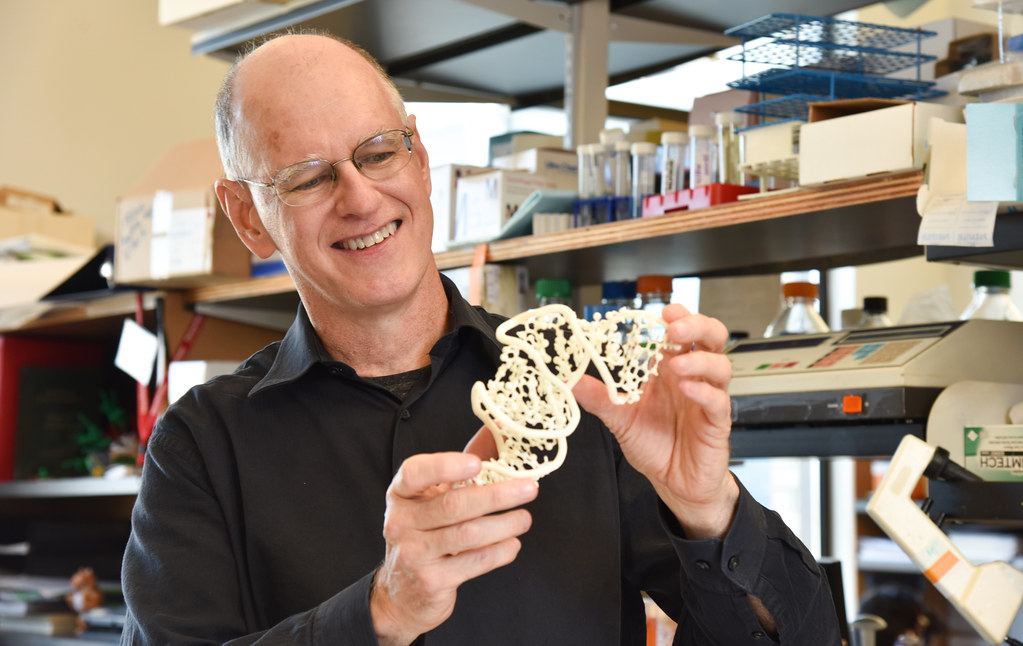Nov. 16, 2020
The search for life on other planets might seem quite literally out of reach, but it actually starts here, on Earth.
“Something that guides people in thinking about how life might come about on other worlds is trying to understand how life might have started here on this planet,” said Donald Burke-Agüero, principal investigator at Bond Life Sciences Center and professor of Molecular Microbiology and Immunology in the MU School of Medicine.
The Burke lab recently won a $5 million Interdisciplinary Consortium for Astrobiology Research (ICAR) award from NASA in partnership with eight other institutions. The award will fund their study of RNA as a model for the origins of life.
“Becoming part of this has been over 20 years in the making for me,” Burke said. “It’s a theme that I care about tremendously, which is providing a really solid experimental foundation for some of the speculation about how life may have started.”
Further exploring RNA brings us one step closer to a model of the origins of life on Earth and even life on other planets.
“We have no idea how likely life is,” Burke said. “If we can help demonstrate some of the ways that life comes into existence, it will really help to understand how many neighbors we might have on other worlds. And whether we’re likely to have any neighbors at all.”




